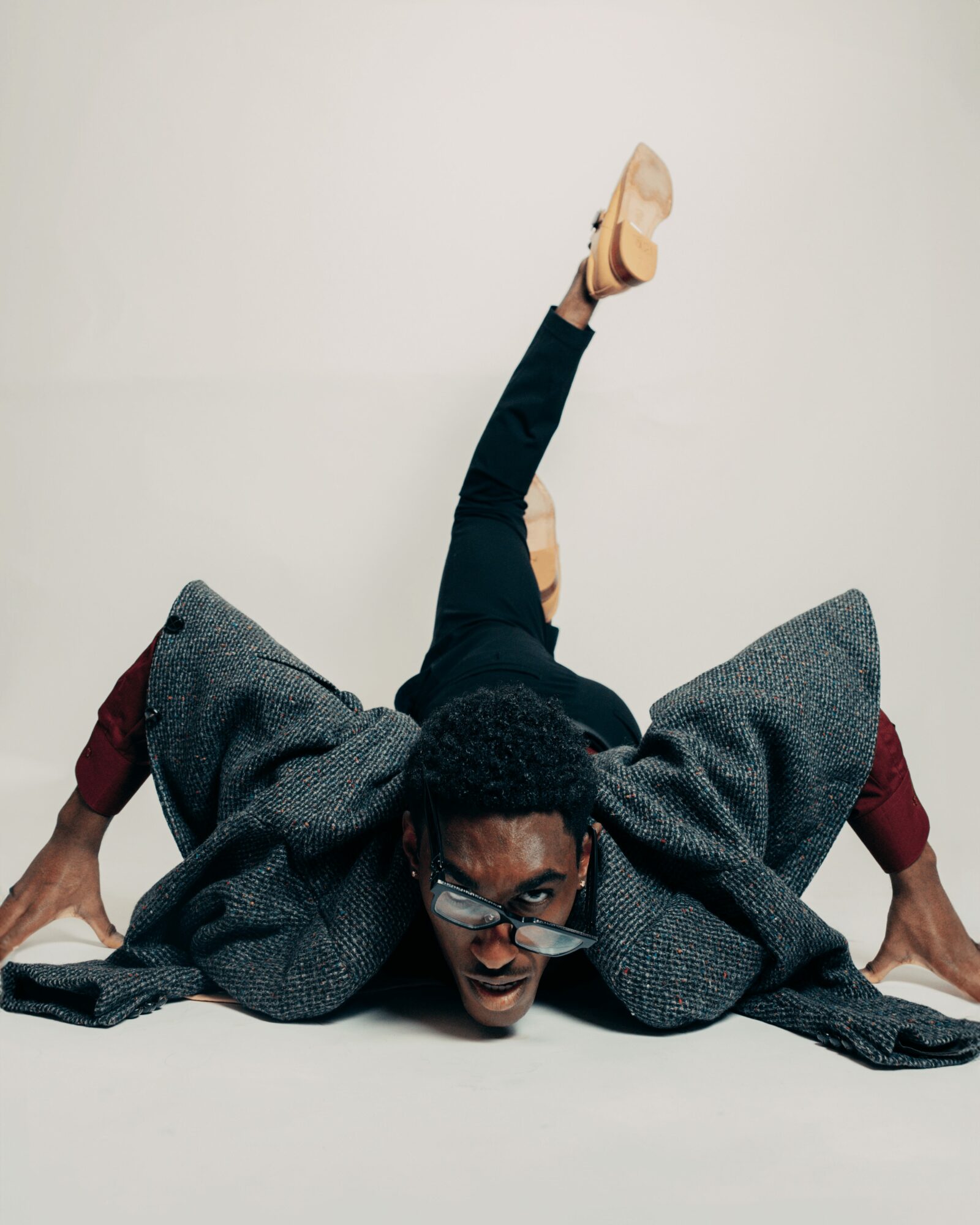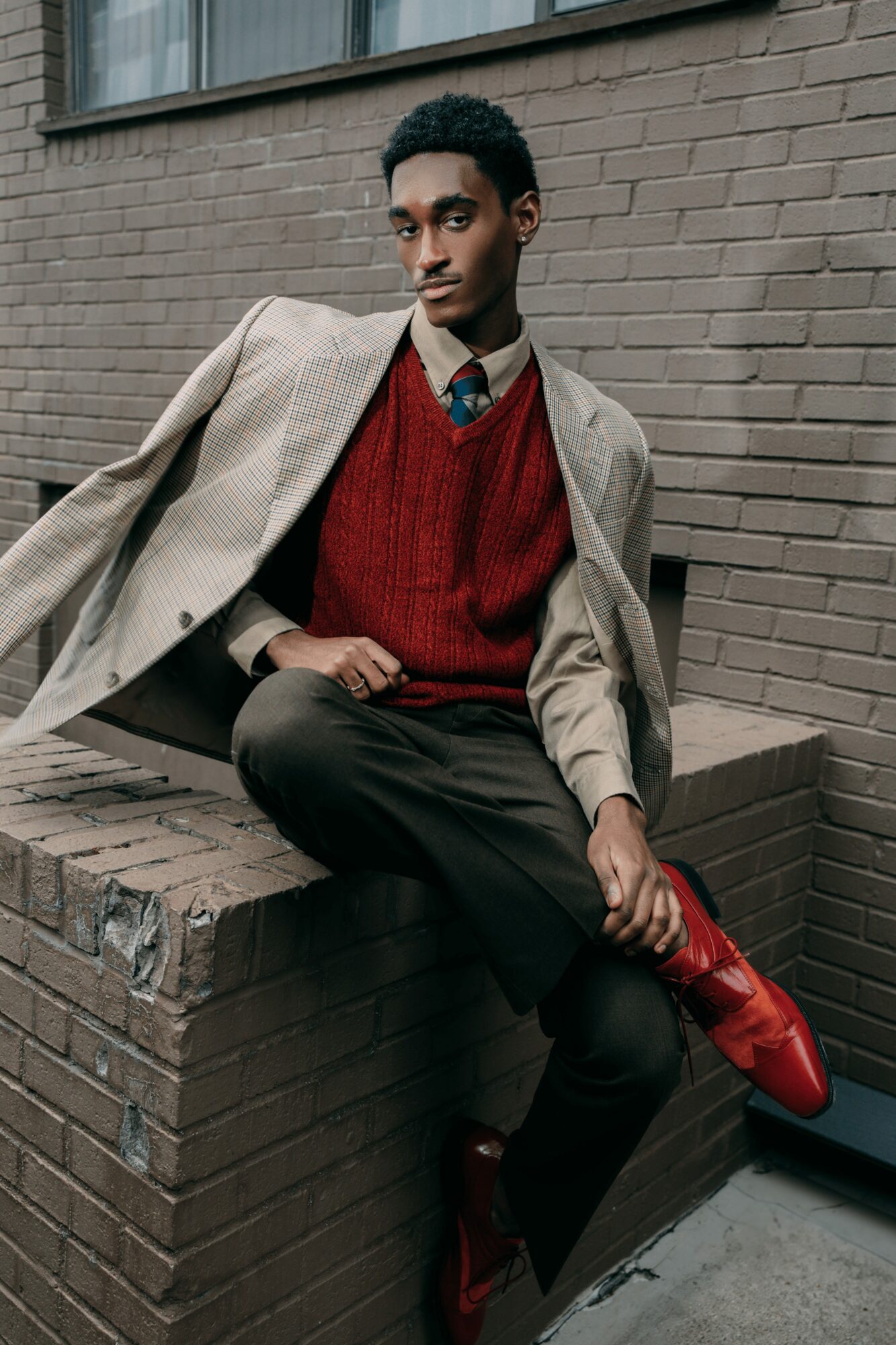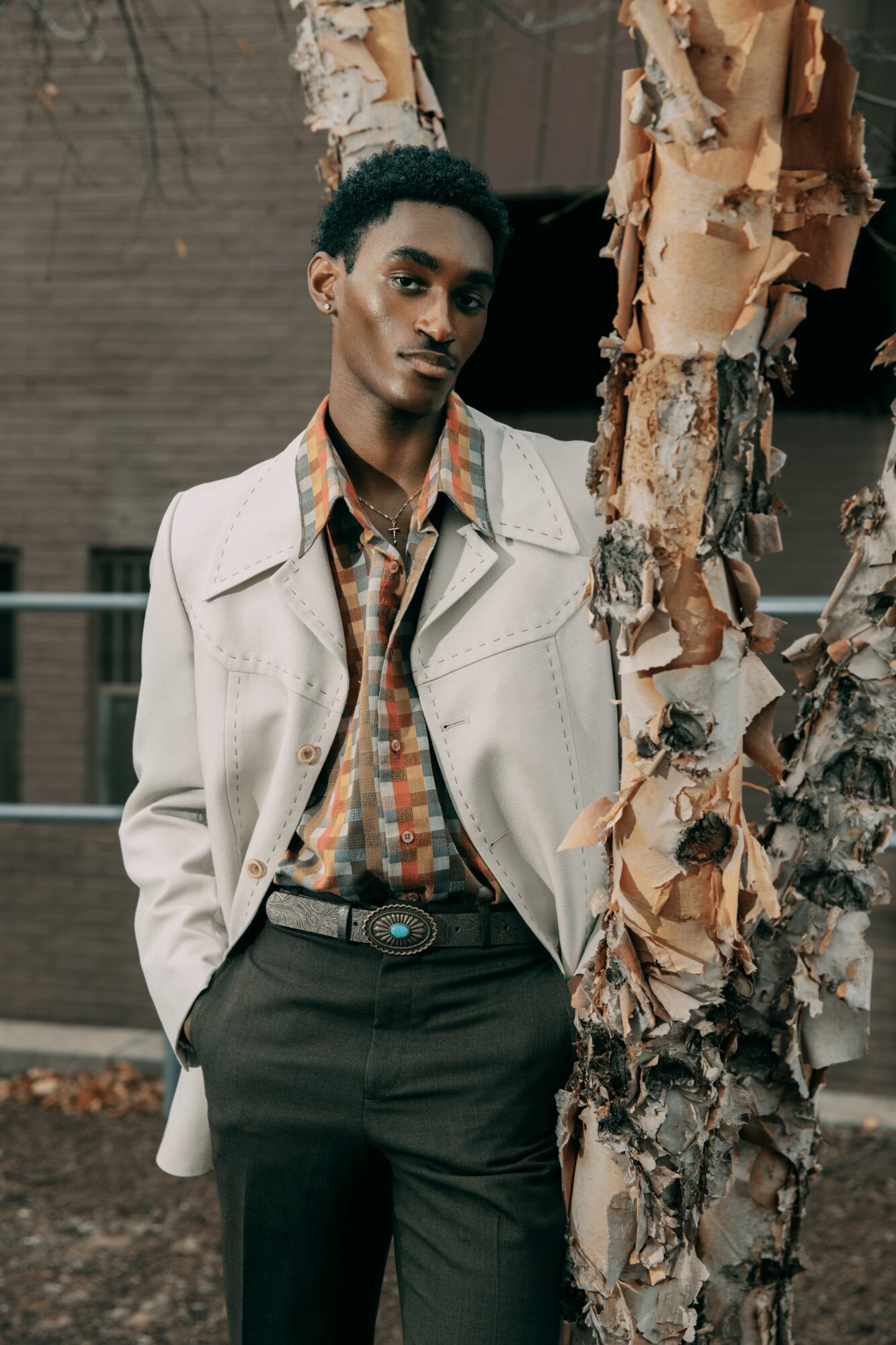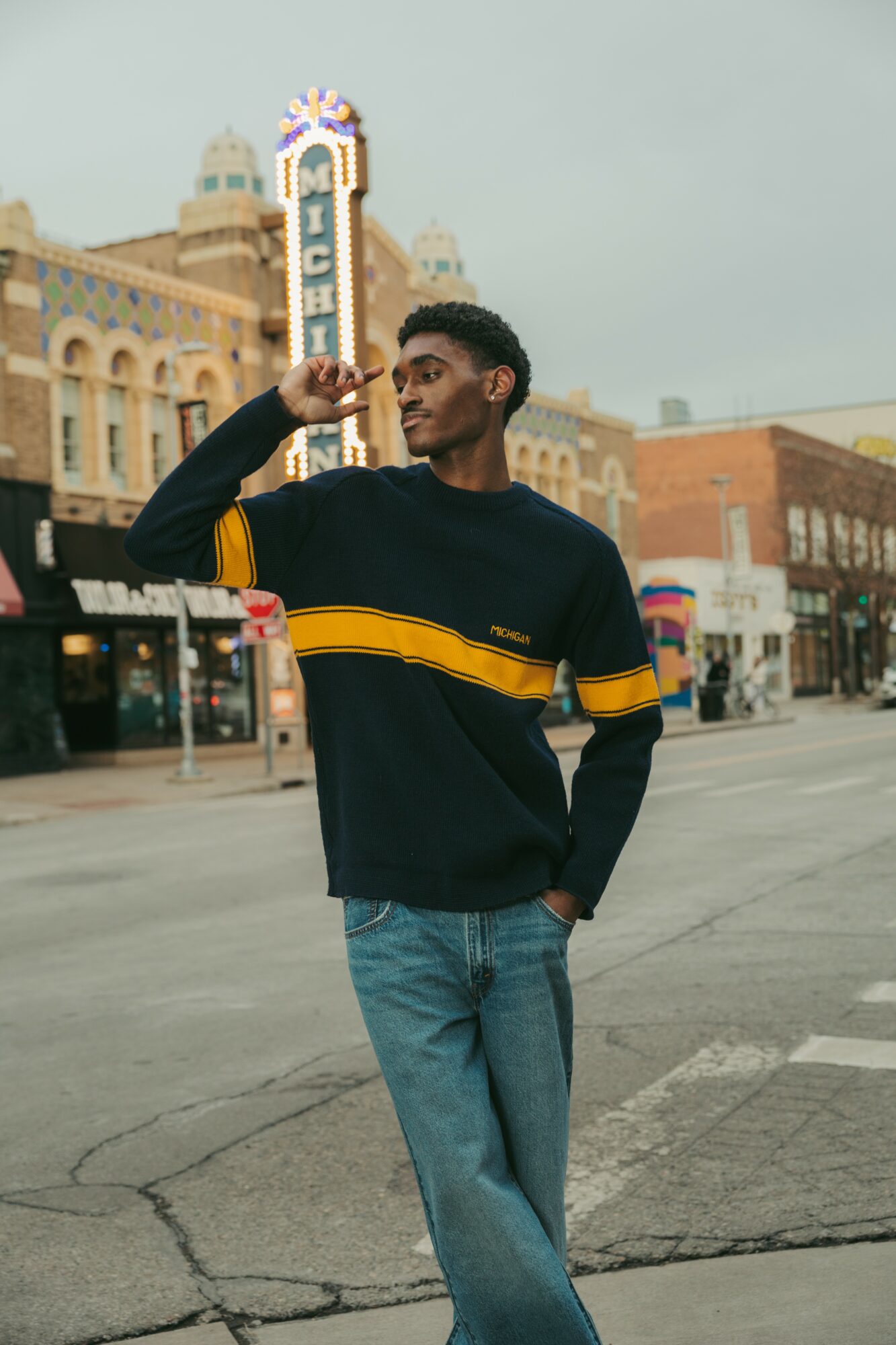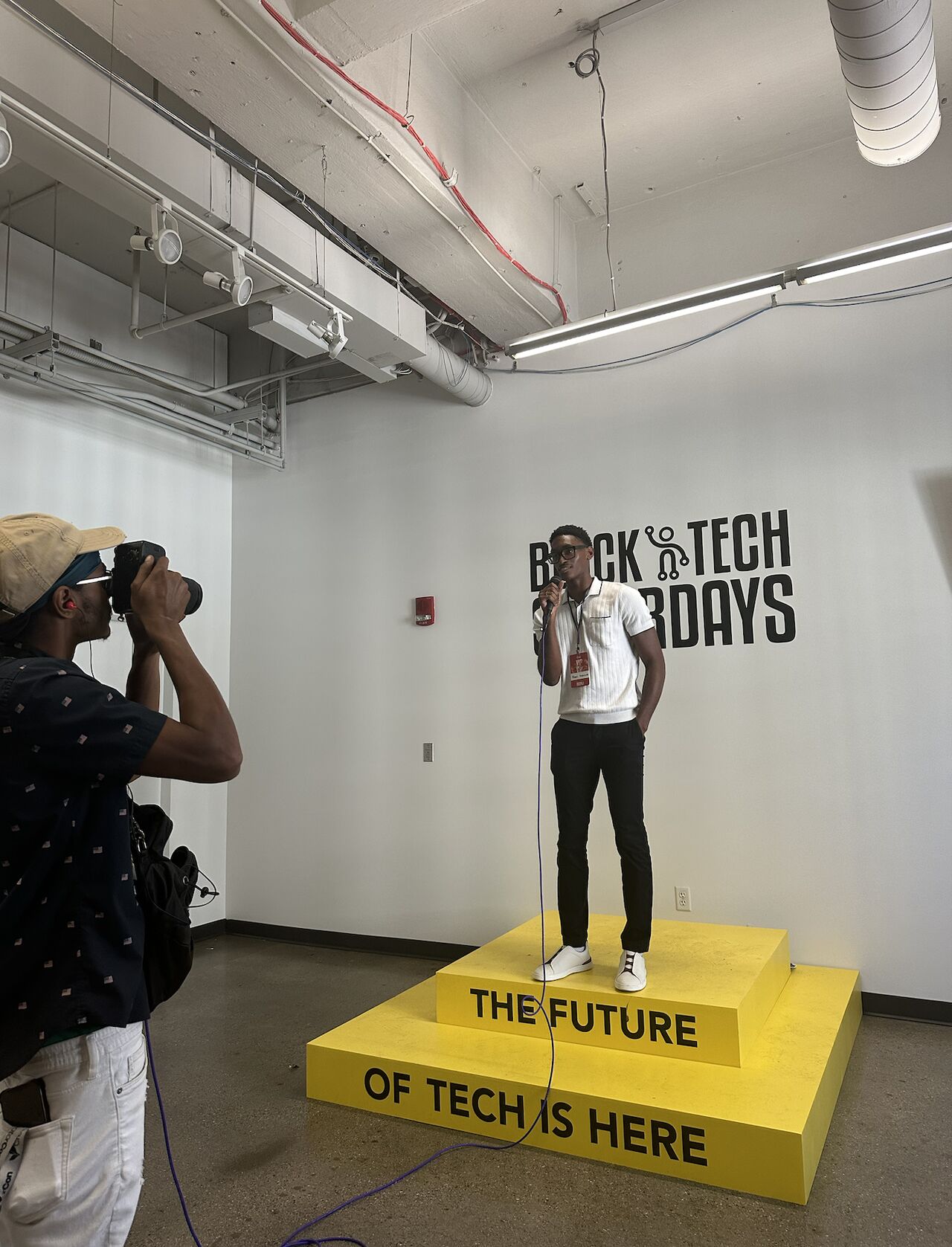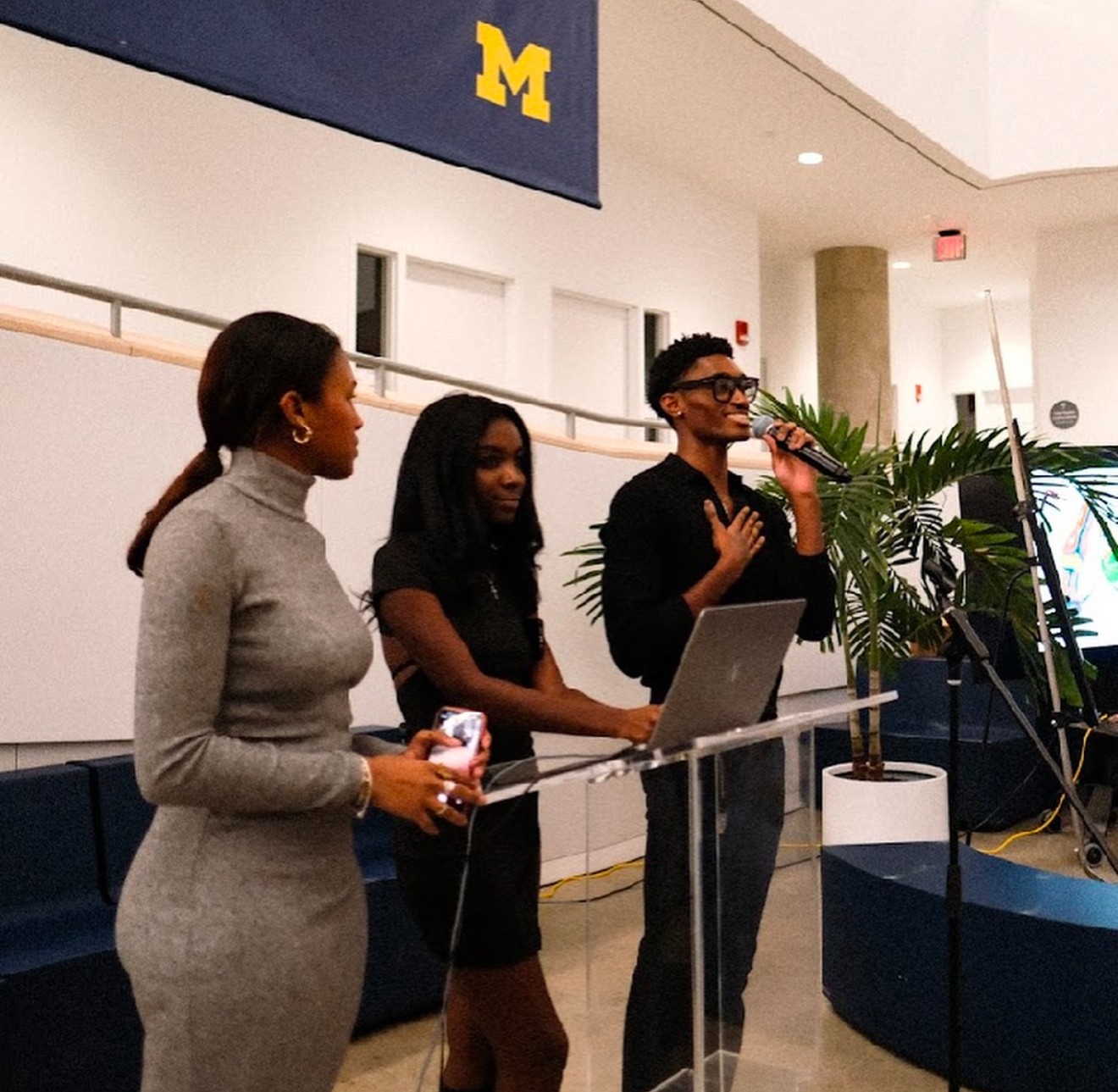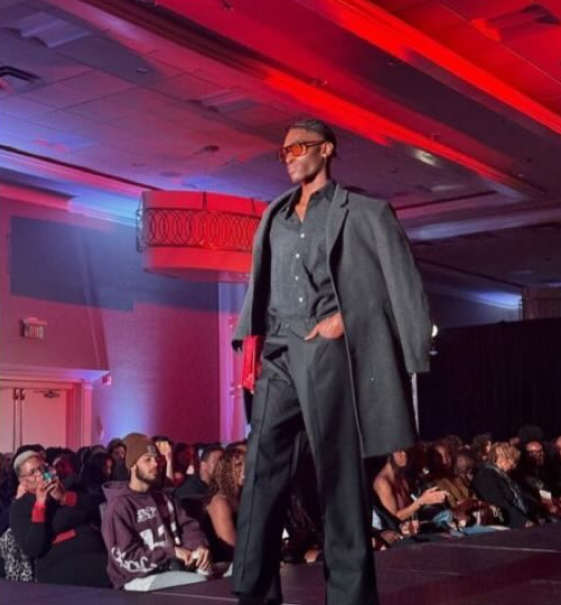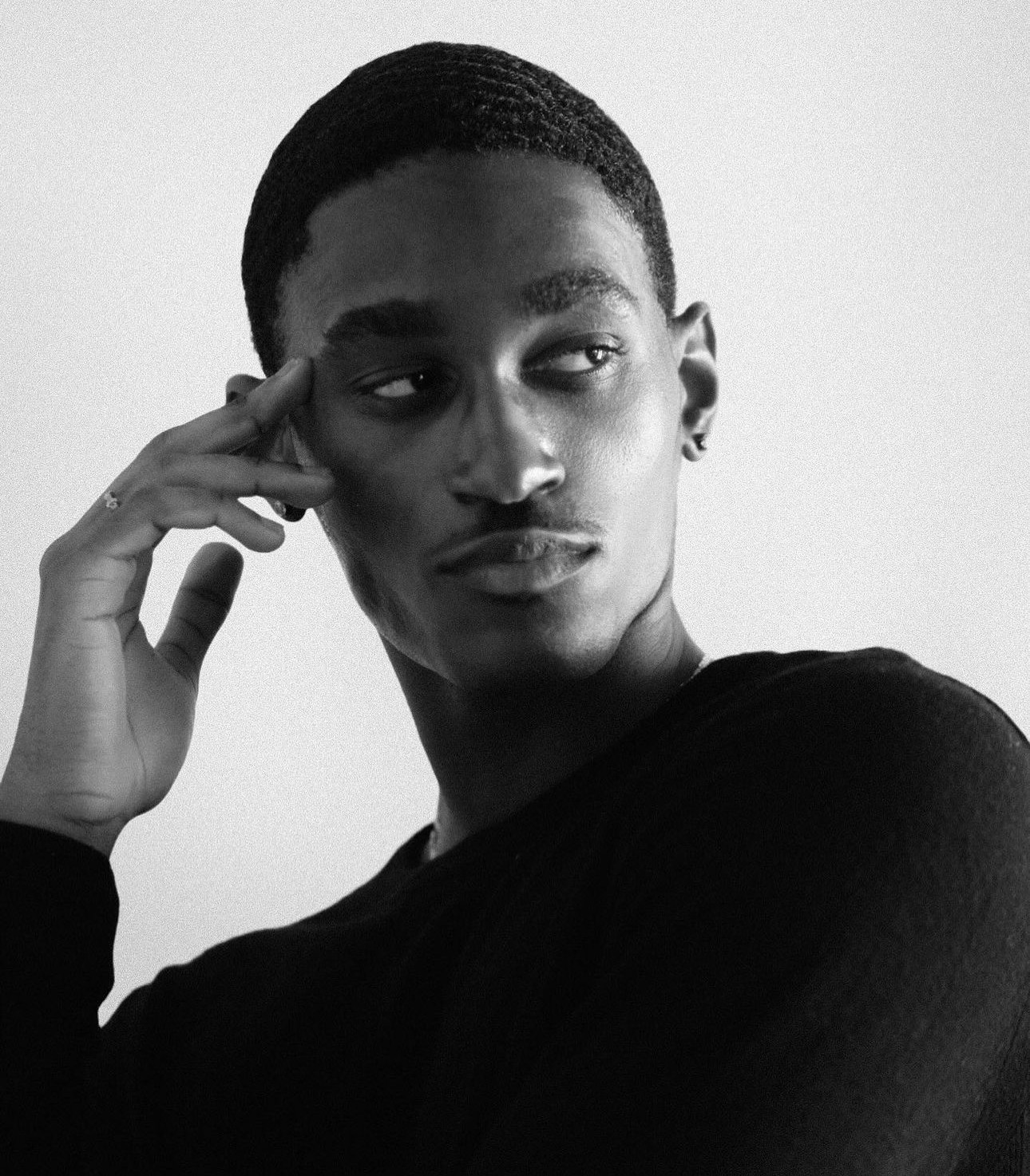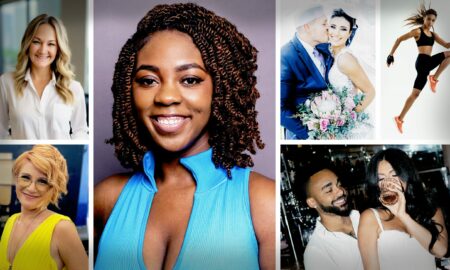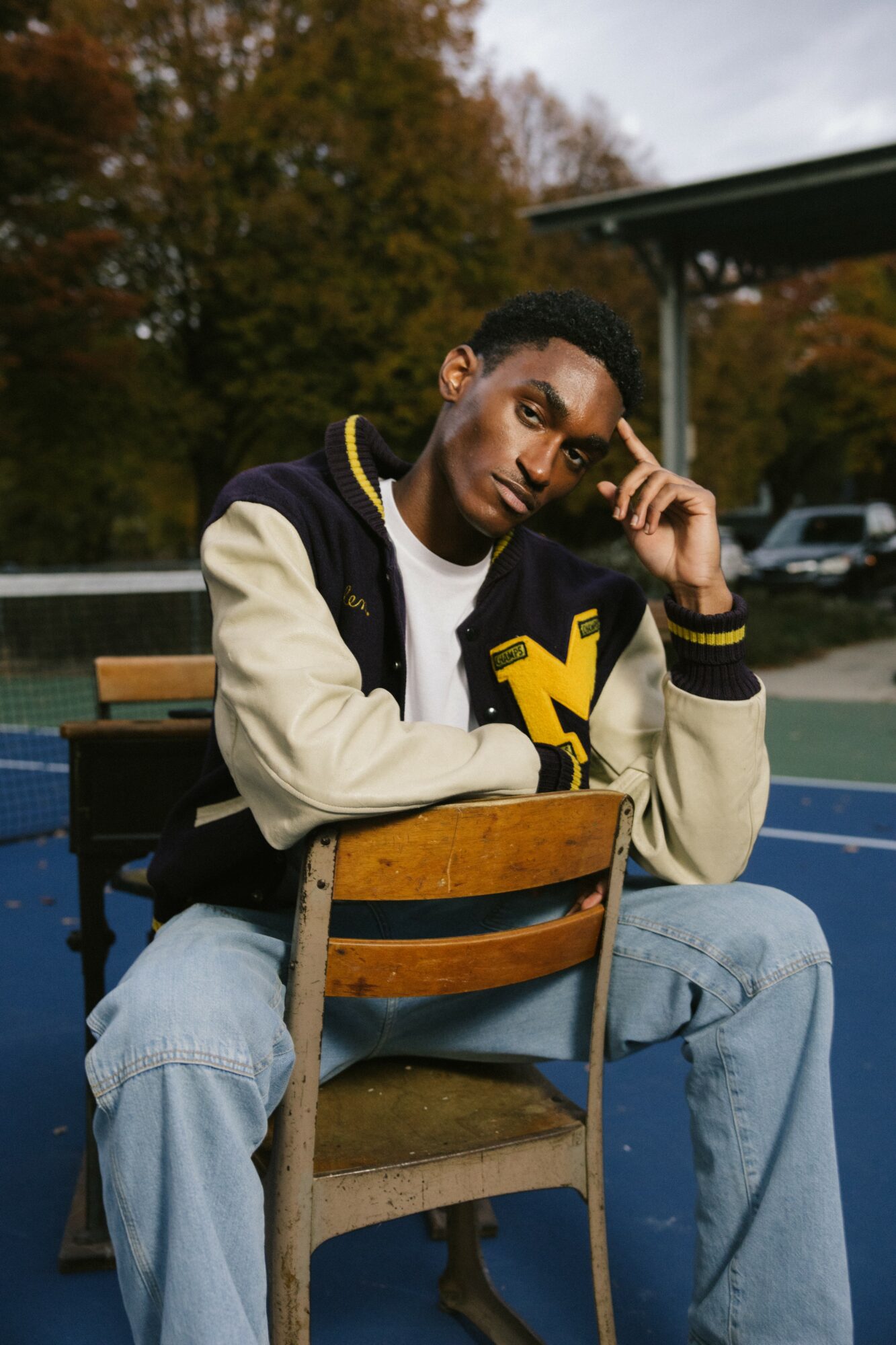

Today we’d like to introduce you to Nuno Andrade
Hi Nuno, it’s an honor to have you on the platform. Thanks for taking the time to share your story with us – to start maybe you can share some of your backstory with our readers?
I was born in Luanda, Angola, surrounded by vibrant culture and a sense of close community. Early in life, my family relocated to Houston, Texas, where my creative and tech-obsessed mind began to flourish. I’d play dress-up with my parents’ clothes, modeling in front of mirrors, imagining myself as a powerhouse in the fashion industry. At the same time, I was endlessly fascinated by each new iPhone release, marveling at how technology could transform lives. My love for being in front of the camera also blossomed, where I would play pranks and sporadically document my life on my devices. I naturally did all of these things before I was even a teenager, unknowingly laying the groundwork for my future passions.
Returning to Angola for high school was a pivotal moment. Attending Luanda International School, I challenged myself in the rigorous International Baccalaureate program while reconnecting with my roots. I strived to still express myself creatively, so I took on leadership roles, such as being the head choreographer and captain of the school’s hip-hop crew, using dance to inspire and connect others.
During this time, I also created and launched a cryptocurrency with my friends called SavannaCoin. The idea was ambitious (trust me, I had no idea what I was walking into), though we wanted to use our mutual interest in technology to make a real change. After a couple months, we successfully launched it with an algorithm where out of a 10% transaction fee, 3% went to charity. We successfully raised $2,000, which we donated to the SCI Foundation to de-worm female African farmers. This experience showed me the power of blending innovation and social responsibility, igniting my passion for meaningful tech-driven projects.
Yet, high school wasn’t without its challenges. It was during this time that I began to grow into my bisexual identity. In Angola, as in many other African countries, being part of the LGBTQ+ community can be life-threatening. I found myself in a constant state of anxiety, hiding my true self to stay safe. It was suffocating, but it also fueled a longing for freedom and self-expression—a yearning I carried with me when I left for the University of Michigan.
Starting college felt like stepping into the light. For the first time, I could truly be myself, and that freedom inspired every decision and venture that followed. I wanted to make my inner child and closeted 17-year-old self proud, and that goal has shaped everything I’ve built.
In my first year, I co-founded BIPOC Builders, a student organization dedicated to empowering students of color in technology, business, and entrepreneurship. Mentorship, career opportunities, and community-building are at the heart of our mission. It’s a project that brings joy to my younger tech-obsessed self, who spent hours dreaming about the possibilities of innovation.
I also launched Studio 605, a fashion and creative collective designed to unify artistic communities on campus. Organizing projects like a campus-wide Fashion Week and fostering collaboration among creatives has been deeply fulfilling. Studio 605 is my way of honoring the kid who twirled in his parents’ clothes, dreaming of runways and creative expression.
My work as a content creator, from being a brand ambassador for Auntie Della’s to modeling and storytelling, has given me the platform to share my authentic self with the world. It’s a role that lets me showcase my light and celebrate the individuality I once had to hide—a fulfillment of what younger me would have strived for.
Looking back, every step of my journey has been about aligning with who I truly am and nurturing the dreams of younger Nuno. From Angola to Michigan, I’ve grown into a person that my inner child would admire—a creative leader, a fearless innovator, and someone who values authenticity above all. I’m excited for the road ahead, and eager to make younger Nuno even prouder of the person he’s becoming.
Would you say it’s been a smooth road, and if not what are some of the biggest challenges you’ve faced along the way?
My journey has certainly not been a smooth road, and a large part of the struggle stemmed from navigating my sexuality in an environment like Angola. Growing up in Angola, where traditional values are deeply embedded, I often felt that being open about my identity would place me in conflict with societal norms. The fear of being ostracized or misunderstood was a constant weight. There were moments when I felt unsafe in my own environment and social circles, especially when dealing with judgmental reactions or discriminatory attitudes.
In many ways, this conflict between who I truly am and the expectations placed upon me shaped my personal growth and my understanding of identity. It was a struggle to reconcile my authentic self with the cultural pressures that often left little room for individuality, particularly when it came to sexuality. This led me to be unable to show up authentically for the entirety of my high school years, but also motivated me to find a place where I felt that comfort.
On top of that, I’ve always been a risk taker and, at times, a black sheep. In high school, I pursued various ventures that were not typical for someone in my position. From achieving strong academic grades to starting new initiatives and even diving into the modeling world, I often found myself standing apart from the crowd. These experiences contributed to a sense of “otherness,” where I felt like I didn’t quite fit in with the traditional expectations around me. This sense of being different, both in terms of my sexuality and my ambitions, heightened the challenges I faced.
At times, the conflict between my authentic self and the cultural pressures I was navigating made it difficult to find a sense of belonging. However, over time, I’ve come to embrace these differences, realizing that being a risk taker and standing out for who I am has shaped my growth in ways that have made me stronger and more determined. The road has been difficult, but it has also led me to find my voice and the strength to create safe spaces for others who might be going through similar challenges.
As you know, we’re big fans of you and your work. For our readers who might not be as familiar what can you tell them about what you do?
I’ve always been known for juggling a lot of different ventures—whether it’s starting organizations or leading community projects, I’ve always had an entrepreneurial itch. But if I had to pick one thing that I’m truly passionate about and what people most often recognize me for, it’s my modeling. And let me tell you, it’s been quite the journey.
It all started in high school when I entered a modeling casting competition that was aired on national TV. It was one of those intense, high-stakes contests, where models from all over the country came together to compete for the coveted opportunity to work with top-tier brands. Fortunately, I made it to the top and ended up winning the competition, which was an absolute game-changer for me. Winning that casting opened the doors to some amazing opportunities, one of which was modeling for international brands, including Hugo Boss. That was my first real taste of the professional modeling world, and it only bolstered a passion I already had.
Before I even came to college, I was fortunate enough to have worked with several major brands, which gave me invaluable experience in front of the camera and on the runway. The industry was fast-paced, and I had to learn how to adapt quickly—whether it was adjusting to different brand styles or embodying various personas for photoshoots. These early experiences helped shape my understanding of what it takes to succeed in the fashion and modeling world and taught me how to navigate the industry with confidence.
When I arrived at college, I didn’t let my experiences stay in the past. I was determined to keep pushing my modeling career forward, so I dove into opportunities with both feet. I’ve walked in runway shows for organizations like EnspiRED Runway and modeled for local brands like Creative Blueprint, Bivouac, and Thrifed University. Each new experience allowed me to expand my range as a model, constantly challenging myself to be versatile and to experiment with different walking styles.
What really sets me apart, though, is the unique approach I bring to modeling. I’ve developed a range of walking styles that make me stand out, from the typical European manly stride to the elegant fluidity of a catwalk or even the power of a horsewalk. I’ve drawn inspiration from industry icons like Alton Mason, studying their movement and incorporating elements of their signature styles into my own. This versatility is something I take immense pride in, as it allows me to fit into a variety of settings and truly make an impact every time I step on a runway or in front of a camera.
Looking back, I’m incredibly grateful for those early opportunities and for everything modeling has taught me. It’s been an amazing ride so far, and it’s a journey I’m excited to continue, both in front of the camera and in all the other ventures I pursue.
What quality or characteristic do you feel is most important to your success?
The quality I believe is most important to my success is grit and resilience. While these qualities are often associated with overcoming career setbacks or pushing through professional challenges, I truly believe grit is universal—it applies to every area of life, from emotional intelligence to creativity, passions, and personal growth.
Grit isn’t just about pushing through when things don’t go your way or when you’re facing tangible obstacles—it’s about having the perseverance and mindset to continuously improve, regardless of the situation. Whether you’re working on emotional intelligence, honing a creative skill, or simply following a passion that requires dedication, it’s the ability to show up every day and strive for growth that truly matters. And grit is what allows you to do that.
In emotional intelligence, for instance, grit means not giving up on understanding and managing your emotions, even when it feels difficult. It’s the persistence to recognize when you fall short and the willingness to learn and adapt, helping you build deeper, more meaningful relationships. In creativity, grit is what fuels the constant exploration, the desire to experiment and push boundaries, even when you face rejection or doubt. It’s about finding new ways to express yourself and constantly refining your craft, no matter how many times you may fail along the way.
Having a mindset that strives for improvement in all areas of life, whether personal or professional, is what truly drives long-term success. It’s not just about getting through the hard times, but also about getting better in the process. Grit motivates you to continue learning, growing, and evolving, whether you’re working on your career, passions, or emotional growth. This holistic approach to success is what makes grit so important—it empowers you to push through any challenge and come out stronger on the other side.
That’s why I believe grit is the foundation of any kind of success, because it helps you not only to persevere but to grow and thrive across all areas of your life.
Contact Info:
- Website: https://www.tiktok.com/@nunomendess12?_t=ZT-8tLHzeDfFF8&_r=1
- LinkedIn: https://www.linkedin.com/in/nuno-andrade-a8618929a
